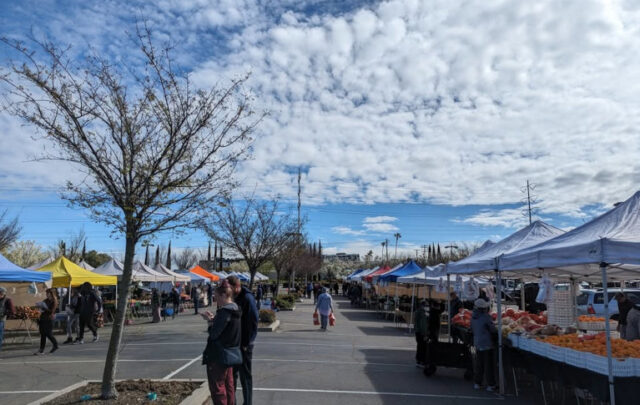
Long Island seaweed and shellfish farmer Bren Smith warned parents in a recent New York Times Sunday Review not to let their children go into farming. Farmers, he claims, ironically struggle to put food on their own tables as industrial agriculture, millionaire “hobby farmers” and well-intentioned non-profit farms crowd out independent growers in an increasingly oligarchic food industry.
Recent buzz among consumers around “local” food and farmers markets haven’t helped much either, as workers along the supply chain continue feeling the brunt of a race to the bottom that includes everything from Big Macs to organic carrots.
Given the rich working-class history of the food movement, it’s bizarre how heavily associated it’s become with upper and middle class white liberals. Since Reconstruction and even before, poor and working people — many in communities of color — have organized self-help programs, credit unions, food cooperatives and land banks as matters of both survival and resistance.
Civil rights leaders like Ella Baker and Fannie Lou Hamer cut their teeth in the cooperative movement, while cooperative and mutual aid programs provided the necessary economic backing for everything from the Knights of Labor to the Montgomery bus boycott. The Black Panthers also carried out expansive economic self-sufficiency programs that provided not only free breakfasts and groceries, but also ambulances and dental care.
Smith makes clear the need for a dual strategy of resistance and resilience; a return to the militant farmer-led movements of the 1870s, 1930s and 1970s. Even as much of the current food movement “[ignores] the core economic inequities and contradictions embedded in our food system,” it holds the potential to mobilize entire supply chains — from growers to producers to low-wage food service workers in restaurants and grocery stores.
As Jessica Gordon Nembhard pointed out in her recent, expansive history of the black cooperative movement, “Collective Courage,” cooperatives throughout history have “fed” movements in more ways than one. Practices of political education and leadership development fostered in that movement — much of it centered around food sovereignty — bled heavily into other movements for social justice. What’s more, these movements were most successful when they paired solutions with opposition: “Where cooperative development was connected to black political power, poverty was reduced … [and] activists realized that political gains, not just economic resources, had to be secured.”
In the wake of nearly 40 years of neoliberal globalization, the agriculture industry’s triumph is no accident, as traditional labor unions have been systematically weakened, basic rights like access to water have been increasingly privatized, and SNAP and welfare benefits have been dramatically scaled back. As Fannie Lou Hamer once said, “Food is used as a political weapon.” Many groups — from Cooperation Jackson to the Southern Grassroots Economies Project — are already fighting back. Taking back food means taking back the economy, and we’ll need every tool in the box.
Photo credit: Green Worker Cooperatives website





